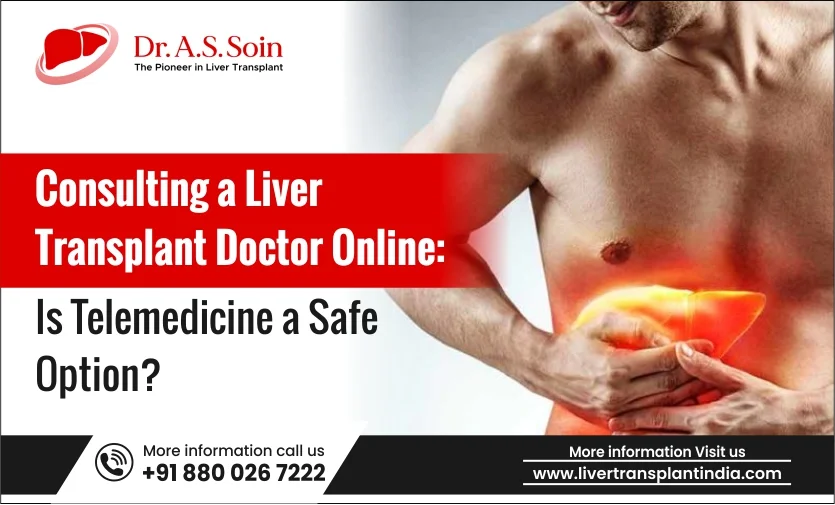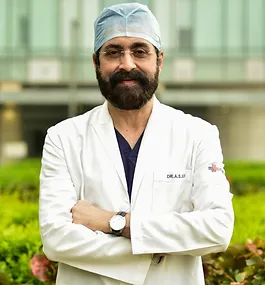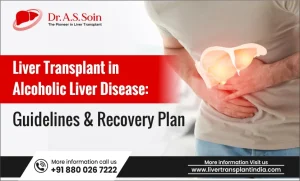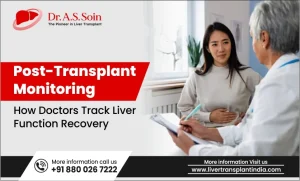There was a time when “seeing your doctor” meant half a day off, long hospital queues, and a face-to-face chat in a cold clinic room. Today, it’s a quiet call from your living room. The stethoscope has gone digital. And for complex conditions like liver failure or post-transplant care, the big question is—can telemedicine really replace in-person consultation?
For many patients and families, especially those dealing with critical liver conditions, the idea sounds risky. “How can a doctor check my liver online?” is often the first reaction. Fair concern. But the truth is, online consultations with liver transplant doctors aren’t just a pandemic leftover—they’re a quietly growing revolution in precision care.
Let’s break this down.
Table of Contents
ToggleThe Old Way: Distance, Delay, and Desperation
Before teleconsultations, liver patients in smaller cities had only two choices:
- Travel to a metro hospital, spend days arranging appointments and tests, or
- Rely on local general physicians who often lacked transplant-specific experience.
This delay could be deadly.
For advanced liver disease, timing is everything—whether it’s listing for transplant, starting antiviral therapy, or adjusting immunosuppressants.
Telemedicine changed this timeline. It collapsed geography, giving patients access to the best liver experts within hours, not weeks.
But is access equal to safety? That’s where the debate gets real.
The Middle Ground: Where Virtual Meets Clinical Reality
Let’s be clear—telemedicine doesn’t transplant livers through the screen.
It’s not meant for emergency management or surgical intervention.
What it does brilliantly is build the bridge between home and hospital.
When a liver transplant doctor reviews your medical history, lab results, and scans online, it’s not guesswork. Most of them use secure cloud systems where reports are directly uploaded, images are high-resolution, and real-time discussions happen with radiologists and hepatologists.
So no, the online consultation isn’t “less” than real—it’s a different kind of real.
In fact, most top liver transplant centers now have dedicated tele-hepatology units where:
- Initial evaluations are done online.
- Patients are screened for transplant suitability.
- Long-term post-transplant follow-ups are managed virtually.
This approach saves patients unnecessary travel, hospital exposure, and time—without compromising medical accuracy.
The Truth: What Can and Cannot Be Done Online
Let’s put it practically. Here’s where online consultation works beautifully—and where it doesn’t.
What works online:
- Reviewing your liver function reports (LFT, INR, bilirubin trends, etc.)
- Explaining imaging findings (CT, MRI, FibroScan)
- Adjusting medications after transplant (immunosuppressants, antivirals)
- Pre-transplant counseling and second opinions
- Monitoring chronic conditions like fatty liver, cirrhosis, hepatitis B or C
- Nutritional and lifestyle guidance
What doesn’t work online:
- Acute emergency cases (bleeding, confusion, severe jaundice, or sudden swelling)
- Physical examination findings (like ascites, tenderness, muscle wasting)
- Immediate hospital interventions (endoscopy, biopsy, or admission)
Think of telemedicine not as replacement—but as a hybrid system that keeps you connected with your doctor continuously, not just when you’re sick enough to visit.
The Missing Link: Pre-Transplant Readiness
This is one area where online consultations have truly made an unexpected impact.
Earlier, pre-transplant evaluations meant multiple hospital trips — meeting the surgeon, anesthetist, psychologist, nutritionist — each on different days.
Now, a large part of that can be done virtually.
A transplant doctor can review all your medical records, imaging, and current health condition online, and decide whether:
- You’re eligible for listing.
- You need further tests.
- You must stabilize before surgery.
This saves critical weeks in decision-making and ensures you reach the hospital only when absolutely necessary.
It’s not just convenience; it’s strategic readiness.
The Quiet Power of “Continuity”
One of the most underrated advantages of consulting a liver transplant doctor online is continuity of care.
Liver disease isn’t a one-time diagnosis—it’s a long, winding journey of tests, medications, and emotions.
Patients often stop follow-ups because the hospital is far, or they feel “fine now.” Online consultations close that gap.
Regular digital check-ins help the doctor catch warning signs early:
a slightly elevated enzyme, a subtle swelling, or a small lab deviation that could mean rejection or relapse.
And for transplant recipients, this continuity is priceless.
Post-surgery, the biggest risk is missing small red flags—a change in tacrolimus level, a new infection, or minor fatigue that might signal graft rejection.
Online monitoring keeps these patients under a steady medical radar, without overwhelming hospital visits.
The Hidden Strength: Post-Transplant Surveillance
This is the least talked-about advantage of telemedicine.
After liver transplant, patients are on lifelong immunosuppressant therapy.
These medications require careful dosage adjustment, frequent blood monitoring, and infection screening.
In-person hospital visits for every small adjustment can be stressful — and risky, considering infection exposure.
Teleconsultations help transplant recipients:
- Share lab reports online for timely medication changes
- Discuss minor issues (like fatigue, mild swelling, cough) immediately
- Stay emotionally supported without frequent travel
The best part? The same transplant team that operated on you continues to supervise you — just remotely.
That’s continuity with comfort.
“But What If Something Is Missed?” – The Common Fear
This is the most common argument against telemedicine for transplant cases.
What if a crucial sign is missed because the doctor isn’t physically examining me?
Fair question. But here’s what’s changed—
Modern teleconsultation isn’t just a video call. It’s a data-driven discussion backed by reports, wearable health trackers, and high-quality imaging.
Patients can now share:
- Blood pressure and pulse trends from smart monitors
- Weight and swelling patterns (ascites tracking through photos)
- Lab reports uploaded instantly after each test
- Ultrasound or CT scan images through secure cloud links
In most cases, this gives more longitudinal insight than a single 10-minute in-person visit.
And if the doctor sees anything concerning, they immediately recommend hospital evaluation.
So, safety isn’t in question anymore—it’s about using telemedicine smartly, not blindly.
The Human Angle: More Connection, Not Less
There’s a common misconception that online consultations make medicine “impersonal.”
But ask liver transplant patients who’ve used it—and you’ll hear the opposite.
Teleconsultation often creates a more open, relaxed conversation. Patients talk freely without the pressure of a busy OPD.
They can include family members from different locations in one session.
The doctor, too, sees the patient in their real environment—how they sit, speak, breathe.
Many doctors say they catch subtle signs online that they might miss in a rushed hospital setup.
So, in a way, the screen doesn’t distance—it deepens understanding.
The Economic Reality: Saving Costs Without Cutting Corners
Liver care is expensive, and transplant follow-ups are lifelong.
Regular hospital visits, transport, lodging, blood tests—it adds up quickly.
Online consultations can reduce this burden significantly.
When routine discussions, prescription renewals, or lab review calls happen online, patients save both money and time, while still getting expert guidance from the same specialist.
Hospitals, too, benefit—better patient retention, fewer missed appointments, and smoother coordination between transplant teams.
So, it’s not just convenient—it’s sustainably smart healthcare.
The Global Shift: How Top Transplant Centres Are Adapting
The world’s leading liver transplant programs—from Mayo Clinic to Apollo—have now built structured “Tele-Transplant” pathways.
That means:
- Pre-evaluation, counseling, and listing discussions happen online.
- Multi-disciplinary meetings (with surgeons, hepatologists, nutritionists) are done virtually.
- Only crucial physical examinations or pre-surgery assessments require hospital visits.
- This hybrid model gives patients global-level expertise without relocating their life.
For patients who travel from smaller towns to big cities for transplant, it also means smoother post-discharge continuity, where their primary care and specialist teams stay in sync through virtual reviews.
The Real Secret: Trust + Tech + Teamwork
Telemedicine works only when three things align:
- Trust – between doctor and patient.
- Technology – that’s secure, stable, and reliable.
- Teamwork – between surgeons, hepatologists, coordinators, and labs.
When these three connect, distance stops being a barrier.
Your care remains just as accurate, safe, and human—only with less travel, less stress, and fewer missed signs.
The Psychological Bonus: Reducing Fear and Fatigue
A less talked-about advantage is the emotional safety that comes with online reviews.
Liver patients often struggle with anxiety — fear of lab results, fear of hospital smells, fear of waiting rooms.
Regular online check-ins replace that fear with familiarity.
They know they can reach their transplant team anytime — not just at the next appointment.
That sense of access builds emotional strength, which directly impacts recovery.
Healthcare isn’t just medicine; it’s also mindset.
Telemedicine strengthens both.
The Future: Hybrid Hepatology Is Here to Stay
We’re heading toward a world where every liver transplant program will run on a hybrid system—virtual when possible, physical when necessary.
Artificial intelligence tools already assist in reading scans, predicting rejection risks, and monitoring medication responses remotely.
Wearable liver health trackers (yes, they’re coming soon) will send live data to transplant teams.
The essence of medicine will remain the same—doctor and patient working together for life.
Only the medium will evolve.
So, Is It Safe?
If you’re consulting a qualified, experienced liver transplant specialist using a proper hospital-linked platform—yes, telemedicine is absolutely safe, and often smarter.
It’s not about replacing physical visits; it’s about redefining accessibility.
And when managed with clinical discipline, it saves time, money, and even lives.
For most patients, this is not “the future”—it’s already here.
Conclusion
Online consultation with a liver transplant doctor is not a shortcut; it’s a continuation of quality care in a more reachable form.
It keeps patients informed, connected, and supervised—without unnecessary hospital chaos.
So if you or your loved one is living with liver disease or recovering post-transplant, don’t hesitate to explore teleconsultation with trusted specialists. It may just be the bridge between uncertainty and steady recovery.
Consult India’s leading Liver Transplant Surgeon, Dr. A. S. Soin, for expert online evaluation and follow-up guidance.
With decades of experience and thousands of successful liver transplants, Dr. A. S. Soin and his team provide safe, structured teleconsultations for patients across the world.








